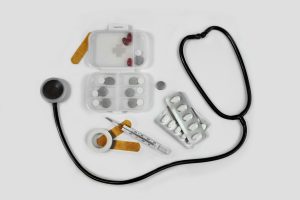Most menstruating women suffer at least one or two symptoms roughly a week before their period which is known as premenstrual syndrome. Mood fluctuations, tiredness, irritability, food cravings, and severe cramping are just some of the symptoms of PMS. The severity of symptoms affects some women’s regular activities and causes them great discomfort. Many of the women who are suffering are turning to complementary and alternative medicine to help them cope with the severe symptoms.
Ayurveda is incredibly effective in reducing and even curing PMS symptoms. Ayurveda help in the balancing of the doshas that are responsible for the symptoms. Nutrient deficiency, inflammation, or an imbalance of estrogen and progesterone leads to PMS symptoms. PMS can be managed to a large extent by lowering stress, making dietary changes, and adding exercise to your daily routine.
Also read: Black pepper: Is it healthy or unhealthy?
In a recent Instagram post, Ayurveda specialist Dr. Dixa Bhavsar recommends these 8 lifestyle changes that can help reduce PMS.
Raisins and almonds
Every day, first thing in the morning, eat five soaked raisins and four soaked almonds.
Seed cycling
For the first two weeks of periods, eat 1 tsp flax and pumpkin seeds, and for the last two weeks of the menstrual cycle, eat 1 tsp sunflower and sesame seeds.
Sweet fruits and healthy fats
Sweet fruits are naturally cooling and grounding, while healthy fats like cow ghee, olive oil, and fats from nuts and seeds keep your metabolism and hormones in check.
Also read: Common myths about in vitro fertilization
Practice meditation and pranayama
Spend 30 minutes a day performing breathwork or meditation for yourself. It is the most effective approach to lower the stress hormone levels, which are linked to PMS.
Stay physically active
Every day, spend 40 minutes movement, either in the morning or evening. You can walk, jog, run, cycle, go to the gym, dance, or do whatever you like.
Drink coriander water once a day
Coriander is a natural stimulant. It calms your intestines, which produce 75 percent of your hormones.





